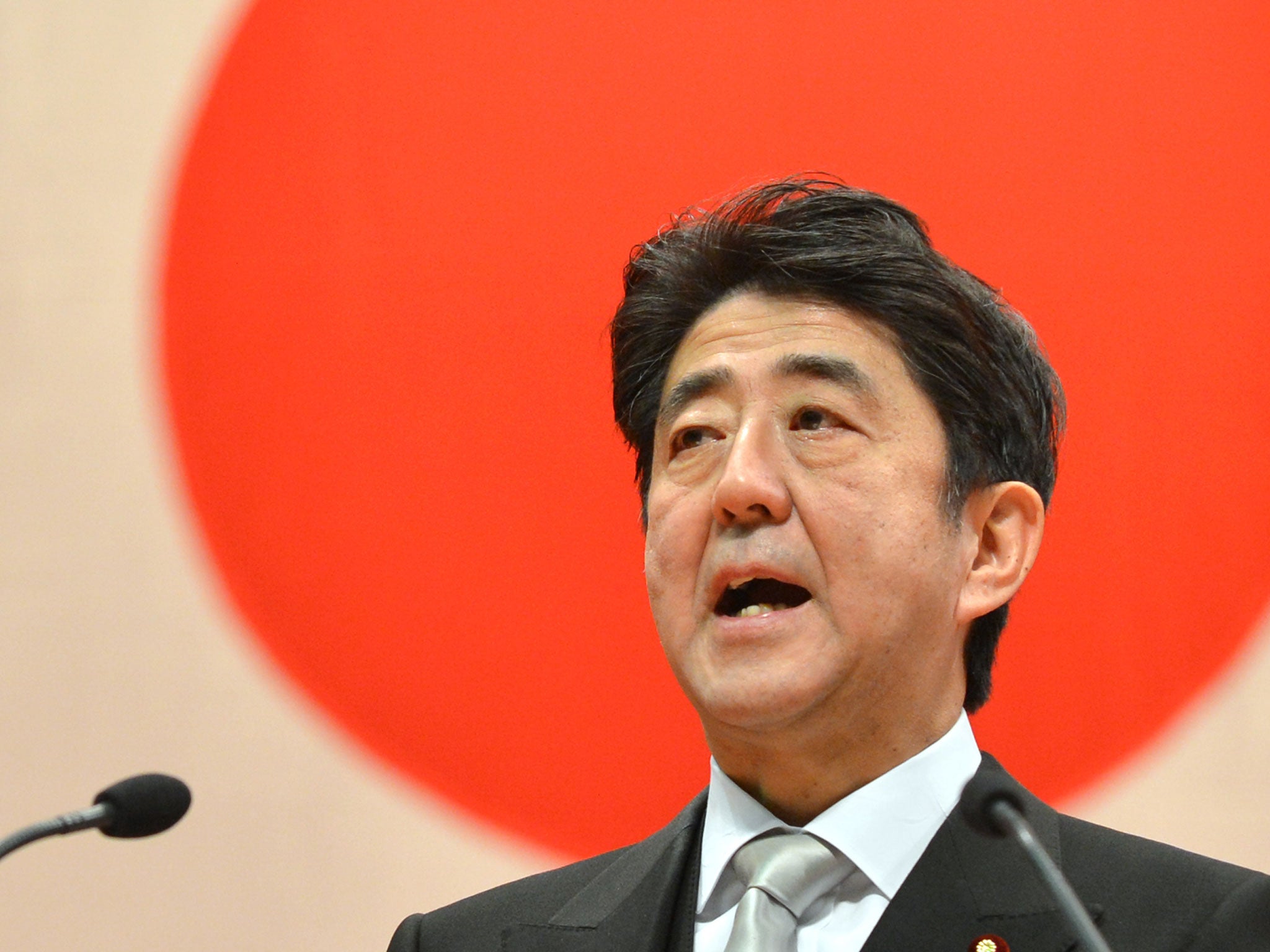Japan should resist right-wingers who discount the country's war crimes
Shinzo Abe’s revisionist government would like to take back an apology over "comfort women"


From the invasion of China up to the end of the Pacific War, the Japanese government systematically forced tens of thousands of women into prostitution to serve the Empire’s soldiers at the front. Most of these so-called ‘comfort women’ came from Korea, which was at the time a Japanese colony, though others were recruited from Japan and the Dutch East Indies. The women were trucked out to brothels at the frontline throughout the Pacific war zone, where they were obliged to service hundreds of thousands of Japanese soldiers.
This is old news. Like many other crimes committed by Japan’s fascist wartime government, it was hastily covered up with the complicity of the occupying post-war American authorities so that life could return to normal with minimal disruption and with many of the wartime politicians and bureaucrats back in charge, enabling Japan to grow rich as the US’s most compliant and obedient ally. An American report on the issue claimed that the women were “camp followers” who “lived well…they had plenty of money with which to purchase desired articles…they amused themselves by participating in sports events with both officers and men, and attended picnics, entertainments and social dinners.”
These grotesque lies were peddled to American authorities all too ready to accept them and let other people’s bygones be bygones.
That might have remained the state of affairs but for a left-wing Japanese journalist who had lived through the war and who began writing books on the horrors of the Pacific war and the pathological behaviour of the Japanese wartime authorities. His name was Kakou Senda. He wrote his books day after day in a Tokyo café, and it was there I used to meet him and listen to his appalling tales. In 1973 he was the first to put the horrors endured by the comfort women – three-quarters of whom died before the war’s end – into print.
Some 20 years later surviving Korean women began to emerge with their own ghastly memories, and the horrors they described in 1993 induced the Japanese government to acknowledge that the women had been recruited by force, and to issue an apology for the “immeasurable pain and incurable physical and psychological wounds” they had suffered.
But Shinzo Abe’s revisionist government would like to eat those words: last month they announced that the apology would be re-examined. This and the decision by Mr Abe and another cabinet minister to pay their respects at Yasukuni Shrine in Tokyo, where the Japanese war dead are honoured, convicted war criminals among them, have enraged opinion in both Korea and China, where the scars of war have never properly healed. Relations between theoretical allies Japan and South Korea are now worse than for many years, with Mr Abe second only to Kim Jong-Un on the nation’s hate list. On his recent tour of Asia, President Obama was obliged to take up cudgels against Japan on the women’s behalf, describing their treatment as “a terrible, egregious violation of human rights.” This week China tried to polarise its two neighbours further, claiming to have found “ironclad” proof of the abuse.
Japan is today a very different nation. It has learned many of the right lessons from the war: it invests in South East Asia with far more awareness of local sensitivities than China, for example.
Japan’s right-wingers, with Mr Abe at the head, clearly believe that the economic doldrums in which the nation wallowed for two decades were somehow connected to its willingness to apologise for its war crimes. Ergo, bouncing back economically requires rewriting the history books. The logic is infantile, and it is driving Japan into an ugly, truth-denying corner.
Join our commenting forum
Join thought-provoking conversations, follow other Independent readers and see their replies
Comments
Bookmark popover
Removed from bookmarks